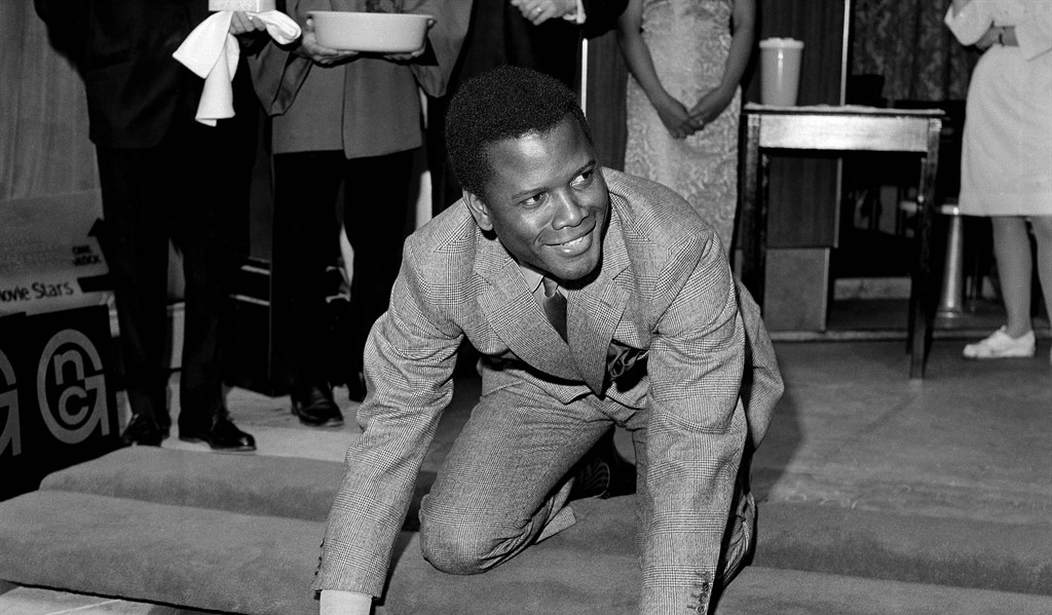An elder stateman has left this plane. His dignity, drive, and determination changed the face of Hollywood and America, and ignited an entire generation of young Black men to be their authentic selves, to pursue the arts, and to be a force of change through creative power on and off the screen.
Sidney Poitier has died at 94 years old.
Trailblazing actor and filmmaker Sir Sidney Poitier has sadly passed away at the age of 94.
He was the first Black actor to win the Academy Award for Best Actor in 1964 for his performance in ‘Lilies of the Field.’ pic.twitter.com/eEmlcopjqQ
— Film Updates (@FilmUpdates) January 7, 2022
Sidney Poitier, one of the last stars from Hollywood’s Golden Age whose barrier-breaking career spanned more than seven decades, has died. He was 94.
Clint Watson, press secretary for the Prime Minister of the Bahamas, confirmed to CNN that Poitier died Thursday evening.
In addition to his world-changing film roles, Poitier was known as an activist and an ambassador. Poitier was active in the American Civil Rights movement, marching with the Rev. Dr. Martin Luther King and John Lewis.
Sidney Poitier (1927-2022) with Harry Belafonte at March on Washington: pic.twitter.com/4Tu6Fo7msn
— Michael Beschloss (@BeschlossDC) January 7, 2022
Poitier also served as the Bahamian ambassador to Japan from 1997 to 2007.
According to his IMDB biography, Poitier was born in Miami in 1927. His Bahamian parents were visiting at the time, and Poitier unexpectedly decided to arrive two months ahead of schedule. Poitier was raised on Cat Island, Bahamas and had little formal education. At 15, Poitier was sent to live with his brother in Miami to deter him from the path of juvenile delinquency.
At 18, he went to New York, did menial jobs and slept in a bus terminal toilet. A brief stint in the Army as a worker at a veterans’ hospital was followed by more menial jobs in Harlem. An impulsive audition at the American Negro Theatre was rejected so forcefully that Poitier dedicated the next six months to overcoming his accent and improving his performing skills. On his second try, he was accepted.
Spotted in rehearsal by a casting agent, he won a bit part in the Broadway production of “Lysistrata”, for which he earned good reviews. By the end of 1949, he was having to choose between leading roles on stage and an offer to work for Darryl F. Zanuck in the film No Way Out (1950). His performance as a doctor treating a white bigot got him plenty of notice and led to more roles.
Poitier brought his elegance and dignity to every role, at a time when examples of dignified Black men were not merely sparse, but nonexistent. Poitier blazed the trail, turning down several roles he considered demeaning (unheard of in that day), and ultimately building a portfolio of work and recognition that moved him into Leading Man status. To get his first major role in No Way Out (1950), the then-22-year-old Poitier lied to director Joseph L. Mankiewicz and told him he was 27.
One of those pivotal roles was 1958’s The Defiant Ones. Portier initially turned down a leading role in Otto Preminger’s Porgy & Bess because he wanted the role in The Defiant Ones. Smart move, as it earned Poitier his first Academy Award nomination as Best Actor. Poitier went on to do Porgy & Bess in 1959, and the critical and commercial success, A Raisin in the Sun, for which Poitier did both the Broadway role and the film.
Five years later, Poitier did what no other Black man had ever done: he won the Best Actor Oscar for 1963’s Lilies of the Field.
1964: Sidney Poitier’s Oscars acceptance speech after he became the first Black man to win an Academy Award for Best Actor
— philip lewis (@Phil_Lewis_) January 7, 2022
The role and win cemented Poitier’s status as Leading Man, and opened the door to more culturally disruptive roles in such movies as 1965’s A Patch of Blue, Guess Who’s Coming to Dinner?, In the Heat of the Night, and To Sir With Love, all in 1967.
Having established his place in history of changing the way the Black man was viewed in society, Poitier chose to let his hair down, so to speak, and took on comedic roles with Bill Cosby and Harry Belafonte in Uptown Saturday Night in 1974, and Let’s Do It Again in 1975, and A Piece of the Action in 1977, all of which he also directed. Poitier directed the comedic greats Richard Pryor and Gene Wilder in 1980s Stir Crazy.
Poitier continued to act, direct, and produce well into the early 2000s. Poitier was presented with a Honorary Academy Award in 2002, the same year that Denzel Washington became the second Black man to win a Best Actor Oscar for Training Day. Washington’s acceptance speech paid homage to the great man.
“I’ll be chasing you, Sidney. I’ll always be following in your footsteps.”
Still a timeless moment between Denzel Washington and Sidney Poitier at the 2002 #Oscars. pic.twitter.com/yCWSkIs7ww
— Lights, Camera, Pod (@LightsCameraPod) January 7, 2022















Join the conversation as a VIP Member